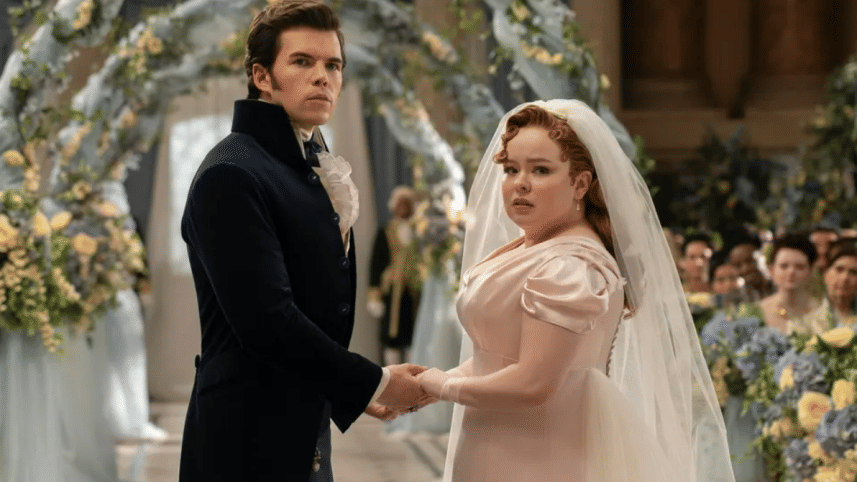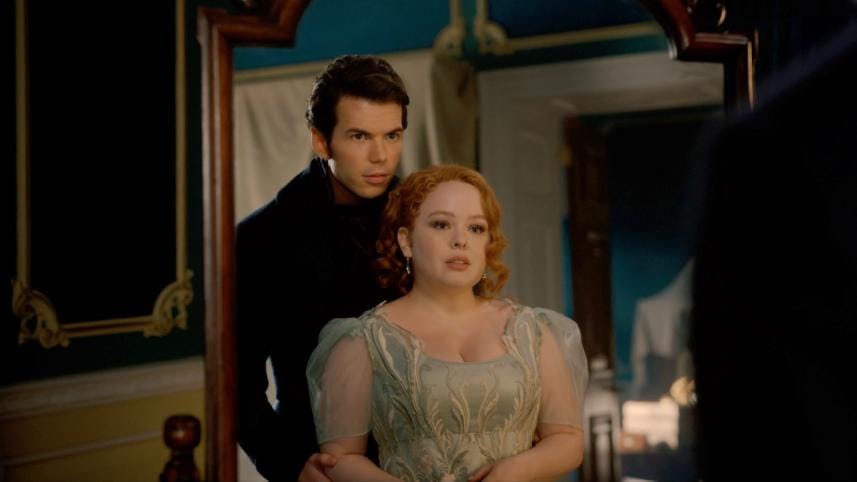‘Bridgerton’ Season 3: A triumphant return to regency romance

"Bridgerton" recently waltzed right back onto our screens for its third season — this time centring on the love story between Penelope Featherington and Colin Bridgerton. In this season, Penelope, secretly the gossip columnist Lady Whistledown, grapples with revealing her true identity while on a mission to find herself a suitable spouse. Colin, on the other hand, returns from his travels with newfound confidence.
The first part of the third season was released on May 16, while the second part followed suit on June 13. This latest instalment also contains several subplots: Other Bridgerton siblings, like Benedict and Francesca, have their love stories explored, friendships are rekindled and broken, and the cat-and-mouse game between Queen Charlotte and Lady Whistledown perseveres.

Nicola Coughlan owns the season as Penelope Featherington. Her portrayal of a woman navigating societal constraints while harbouring a secret identity as the powerful Lady Whistledown is captivating. We witness Penelope's growth from a wallflower to a woman wielding influence through her writing. There were rumors before this season aired that Penelope would likely give up her writing and avoid living a double life as she settled down with Colin. However, the writers chose not to follow that path and instead portrayed her Whistledown character as the one that emboldens her.
Colin, played by Luke Newton, has admittedly not been as madly in love with Penelope in the show as he is in the book. In the book, he sticks to her like glue even when he is mad at her; he slices his hand open while arguing with her. However, in the show, he leaves her alone in the middle of the night and even tries to convince her to give up Whistledown.

The main qualm for most of us, the audience, is that Colin only notices Penelope when she is betrothed to someone else. However, if you have followed their story from the beginning, you would know that their love story is a slow burn, one that has been established throughout previous seasons. Their chemistry flickers inconsistently, with the emotional fireworks only taking centre stage this season. Whether it is through words of affirmation, making her feel seen, or taking her advice seriously, Colin is always there for Penelope.
This season's love is also a nod to a famed tale from Greek mythology: Colin and Penelope's love story can be paralleled with that of Eros and Psyche. As per the mythos, Eros is sent to shoot Psyche with his "love" bow to make her fall in love with someone else, but instead, he falls in love with her. In the same vein, Colin realises his undying love for Penelope when he is in the process of finding her a husband.

While the Colin-Penelope romance may not ignite impassioned flames, the season thrives on the strength of its supporting characters. Eloise Bridgerton and Penelope's friendship is, once again, challenged this season, but it is a thrilling ride to see them make it work eventually. The ever-intriguing Lady Whistledown subplot keeps viewers guessing too, with a satisfying reveal that adds a layer of complexity to the series' narrative.
We are introduced to a new side of Benedict Bridgerton as he bucks the trend of Bridgerton love stories dedicated to being only between a man and a woman. While the season focuses on Penelope's story, it cleverly lays the groundwork for Benedict's season, which will most likely contain LGBTQ+ themes. On the other hand, Francesca Bridgerton's love story can make one feel like being in the shoes of a wallflower as we watch two introverts fall in love by enjoying silence together, but also become courageous enough to fight for their love.

The extravagant world of "Bridgerton" remaines a visual feast. From the opulent ballrooms adorned with cascading floral arrangements to the breathtaking gowns that shimmer with every step, the production design transports viewers to a Regency wonderland, implicating inclusitivity. The soundtrack, a playful blend of classical and pop, continues to be a delightful anachronistic touch. This in turn keeps the aware audiences anticipating freshly released popular tracks from any given artiste to hopefully make it in the series.
"Bridgerton" has always been unafraid to tackle social issues hidden beneath the surface of Regency London. While the third season is lighter on the sharp wit and biting social critiques compared to its previous outings, it still poignantly addresses themes of female agency, societal pressures, and the importance of self-expression.




 For all latest news, follow The Daily Star's Google News channel.
For all latest news, follow The Daily Star's Google News channel. 
Comments